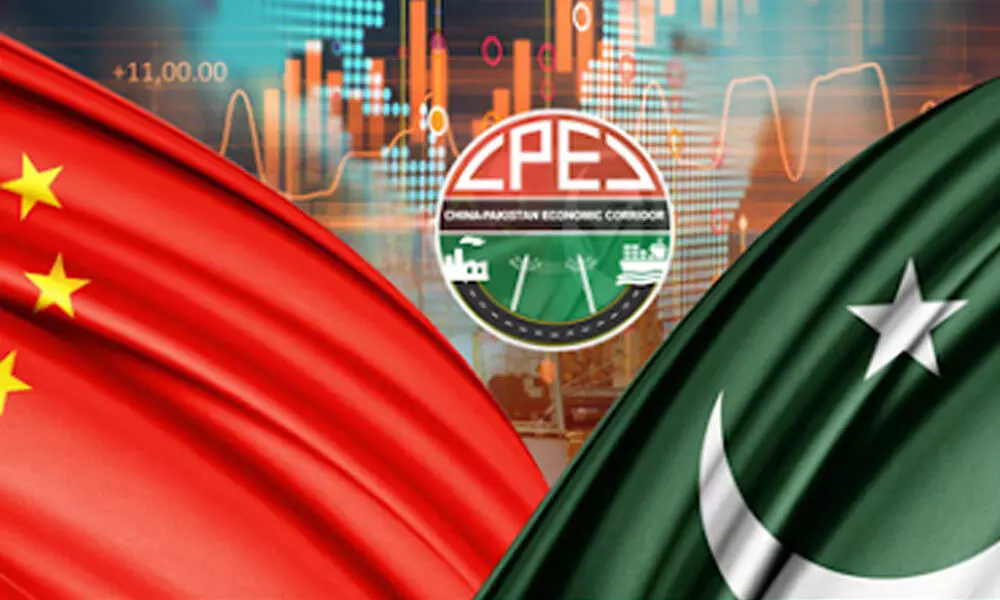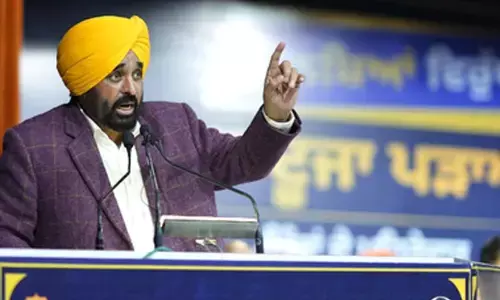CPEC: The corridor of political machinations

CPEC: The corridor of political machinations
In 2015, China announced CPEC (China Pakistan Economic Corridor), which is part of its intercontinental Belt and Road Initiative (BRI), with an aim to expand its influence in Pakistan and across Central and South Asia, as well as countering US influence in the region
In 2015, China announced CPEC (China Pakistan Economic Corridor), which is part of its intercontinental Belt and Road Initiative (BRI), with an aim to expand its influence in Pakistan and across Central and South Asia, as well as countering US influence in the region. Some CPEC projects have been put on a backburner, and some are moving very slowly.
The main reason behind this is the incumbent government's lack of interest in the project. To understand this, we have to recall Imran Khan's opposition to CPEC before coming to power. In 2014, his protest against then PM Nawaz Sharif, and the blockade of Islamabad, resulted in the cancellation of Chinese President Xi Jinping's official visit to Pakistan.
Sharif even requested Khan postpone his protest so that Xi could visit the country, but Khan's Pakistan Tehreek-e-Insaf (PTI) party rejected the offer. Xi was supposed to inaugurate CPEC in 2014; the project eventually kicked off a year later. Pakistani media has widely reported the remarks of the Khan's government on the CPEC in 2018 itself that the corridor must be put on hold for an year at least before a review takes place.
CPEC suffers from Pakistan's corruption too. The latest example of how Bajwa's family benefited due to the CPEC over a period has taken Pakistan by storm. The PTI has maintained that former Prime Minister Sharif and his close aides were colluding with Chinese companies for monetary gain. How does Khan answer the charges now?
Also, the military establishment that helped Khan's rise to power was also not very pleased with CPEC. Actually, they were of the view that if Sharif was allowed to carry forward CPEC, it would make him more powerful as prime minister. They thought that Sharif would gain more popularity and would not be dependent on the military anymore.
The opposition to CPEC also comes from Gulf States, which fear that the Gwadar port (part of CPEC) in Pakistan's western Baluchistan province would increase Beijing's influence in the region, where they already have major ports.
Yet another question doing rounds is whether the Pakistani military is really wary of CPEC? They have never publicly opposed the project as far as people know yet, there are many reasons for this wariness. The military generals give priority to defence ties with Beijing, but they also think that huge economic projects like CPEC would strengthen financial ties with China, and political forces would lap up the credit for that.
Also, in the long run, CPEC would force Pakistan to improve ties, they fear, with arch-rival India and other neighbouring countries, it is feared. All this would be in conflict with the military's security doctrine that gives Pakistani generals an upper hand in the affairs of the country. China is certainly unhappy with the same. It is also unhappy with India which has queered the pitch for it by revoking Article 370 and reiterating claims on PoK.
China knows that all is not well with the CPEC. The latest allegations against the Bajwa family only add fuel to the fire. So China has this headache too to be handled now. The tardy progress of CPEC is one of the major problems that Xi is trying to divert his people's attention from.








